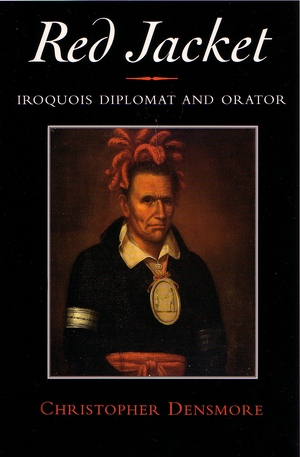"As close and thorough an investigation of available resource material as one can humanly make, certainly as has yet been made. . . . All that one can ask of a biography."—The New York Times Book Review
"Superb. . . . An important and outstandingly researched biography. "—Choice
"Highly readable . . . . Richly detailed history."—Publishers Weekly
"A fine and enduring biography of a major Indian leader."—The American Historical Review
"An extremely valuable study. Exhaustively researched and well written, it calls attention to Brant's historical significance. In addition, it corrects numerous myths about Brant."—William and Mary Quarterly
Description
This is a major historical biography of the great Indian figure from the Revolutionary War period. Kelsay calls Joseph Brant the “most famous American Indian who ever lived”—a claim which she supports with her book. The result of some thirty years of research and writing, Joseph Brant provides a total picture of Indian life in northeast and mid-America at the end of the 18th century. Kelsay presents the reader with a wealth of characters and recreates in rich detail the historical period, its mood, and atmosphere.
Educated into European culture, Brant belonged everywhere—and nowhere. Born in a bark hut, he died in a mansion. A “common Indian” among an aristocracy-ridden people, he married power (his wife was the head woman of the Mohawks) and came to be resented as “too great a man.” He built churches, befriended missionaries, translated a prayer book into Mohawk—and voiced scandalous doubts about the Christian religion. Though he was called the “Monster Brant,” he was merciful in warfare. He worked all his life for the good of his people.
His position and prominence brought him into contact with most of the major figures of the period, including George Washington, George Ill, Aaron Burr, Sir William Johnson, even a traveling James Boswell. His best friend
was an English duke.
His enemies were legion. Washington tried to bribe him, his own son tried to kill him, and many of the Indians hated him. It was his tragedy to preach an unattainable unity to tribes torn by jealousies and ancient feuds.
About the Author
Isabel Thompson Kelsay was born in Appalachia. In a small local school she fell in love with history and has involved herself in it, in one way or another, ever since. Kelsay holds academic degrees from three universities—Tennessee, Wisconsin, and Columbia. She has taught on the Iroquois at the Seminars in American Culture at Cooperstown, New York, and has contributed to Calendar of North Carolina and Tennessee Papers, Dictionary of Canadian Biography, New York History, and East Tennessee Historical Review.
March 1984




